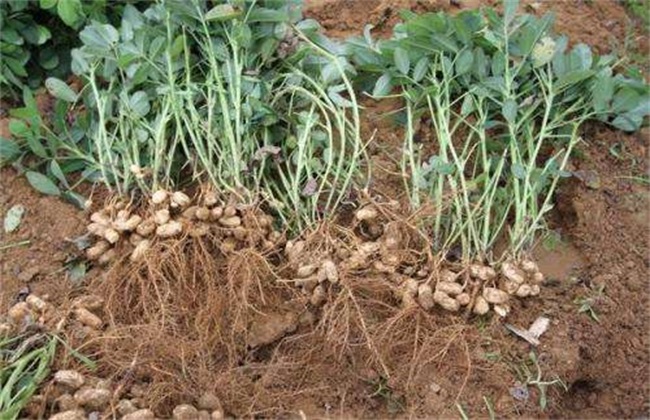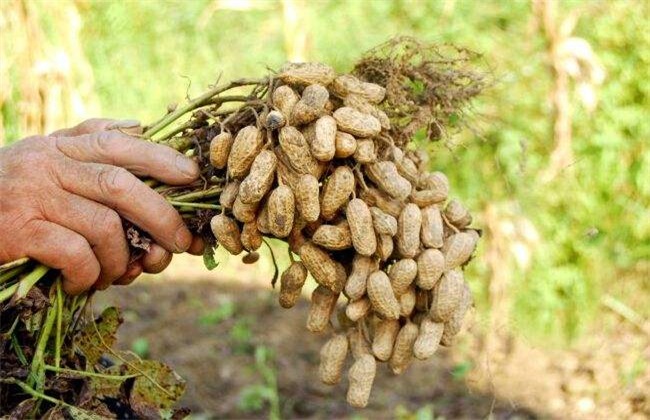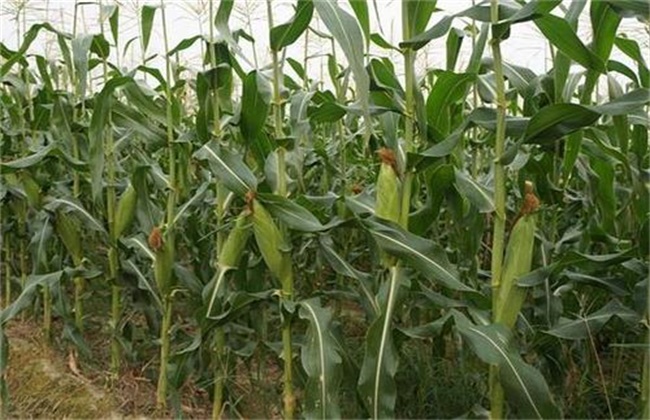How to manage peanut in the middle and later stage
Peanuts are a kind of food that everyone likes very much. they can not only be eaten raw, but also can be used to make all kinds of small snacks. They are also very popular in the market. And peanut is also an oil crop, so there are still a lot of people growing peanuts. When planting peanuts, the middle and later stage management of peanuts is very important. So how to manage peanuts in the middle and later stage? The following editor will give you a brief introduction, let's have a look!

1. Rational watering
When peanuts enter the flowering stage and podding stage, we should pay attention to controlling the water content in the field. The maximum water holding capacity in the soil should be controlled at about 25%. It should be mainly irrigated by furrow irrigation, not flooded. Avoid the phenomenon of rotten fruit caused by excessive water in the field, which leads to excessive growth of peanut stems and leaves. In the peanut pod ripening period, if you encounter the phenomenon of drought, then appropriate small water should be irrigated. During the expansion period, the demand for water in peanuts will increase greatly, but they are afraid of being waterlogged and rotten fruit. Therefore, if there is a rainy day, then drainage should be done in time. Especially in the land with heavy soil and flat terrain, we should pay more attention to the work of flood prevention.
2. Proper fertilization
In the middle and later stage of peanut, the growth rate of its stems and leaves is relatively fast. And the plant will bloom a large number of needles, fruit needles will be buried in the soil to form pods, the demand for nutrition will naturally increase. At this time, if the leaf color is light yellow and small, and the leaf veins are green, then nitrogen fertilizer should be added in time. About 18kg nitrogen should be applied per mu. If the growth of the plant is poor and the leaf color is blue-green with curling phenomenon, then it is necessary to apply appropriate amount of diammonium phosphate. If the root system function is poor, then it should be mainly potash fertilizer. Finally, if the plant grows slowly and the empty shell rate is high, calcium should be replenished in time.
3. Control the growth of stems and leaves
In the middle and later stage of peanut, we should control the stem and leaf growth of the plant to avoid excessive growth of stem and leaf. Therefore, you should tread on the seedlings on a sunny day to trample down the main stem, but be careful not to break it. Shorten the distance between the fruit needle and the ground, so as to achieve the purpose of controlling seedlings and promoting roots. Then when the main stem of peanut grows to about 38 cm, and the daily growth exceeds 1cm or so, appropriate amount of paclobutrazol and promethamine should be sprayed to avoid premature senescence of leaves and ensure the normal growth of peanuts.
4. Cultivate soil and weed
The main purpose of soil cultivation is to thicken the soil layer and advance the time when the fruit needle is buried and fruited. It is appropriate to cultivate the soil when the ridge is closed and part of the fruit needle is buried. When cultivating the soil, pull the soil to both sides of the base of the peanut plant, do not press to the branches, and then cultivate the soil manure twice every ten days or so. In addition, in the middle and later period of peanuts, there were more Rain Water because of the higher temperature. Therefore, it is easy to grow weeds, which will not only reduce the permeability of the field, but also absorb a lot of nutrient water and affect the plumpness of pods, so we also need to do a good job of weeding.
The above is a brief introduction to how to manage peanuts in the middle and later stage. That's all for today's introduction. This article is for reference only. I hope it can help you all.
Related
- The first cup of black tea in spring, the flavor and history of tea gardens in Kenya, Africa
- The computer can not only choose potatoes, but also grow tea rice. AI will grow winter oolong tea champion.
- It is not only the inflated tea bitten by insects, but also engraved with the four seasons tea in Beipu.
- The Oriental Beauty Tea Festival in Zhuxian County takes the stage at the weekend to experience the plus-size feast of oil tea.
- & quot; Oriental Beauty Tea & Exploration of Emei in Hsinchu, the hometown of quot;
- The new variety of strawberry "Tainong 1" dessert is the first choice with mellow aroma. Crimson gorgeous
- History of Tea in Taiwan: from Wild Inner Mountain to Export Tea Garden
- Two types of Taiwan Oriental Beauty Black Tea won the British three-Star Award for Childhood Tea Xiang Zhang Jiaqi changed from pilot to champion tea maker.
- Banana species and varieties: the planting history of Taiwan Xianren banana and dwarf banana is long, is banana disease resistant?
- Coffee planting Technology: Qianjie Coffee from Seedling to harvesting



